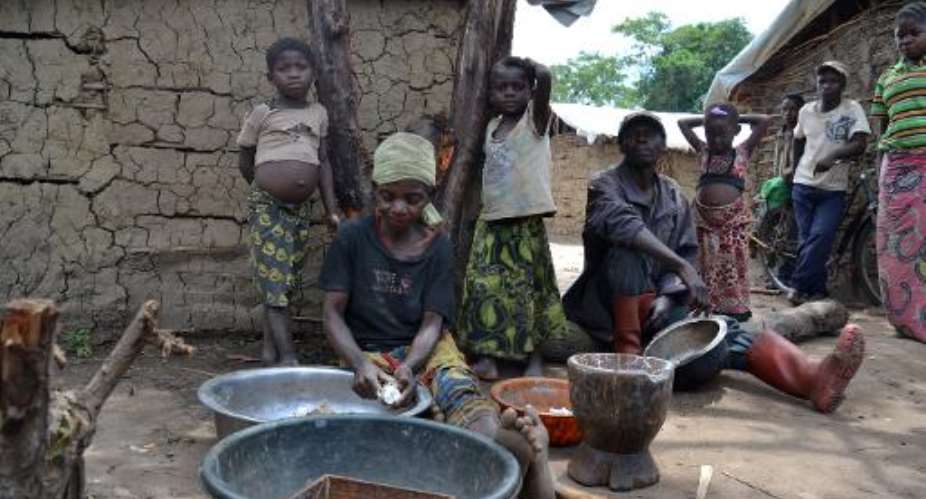Kinshasa (AFP) - Pygmies in the Democratic Republic of Congo used the forum offered by a festival of indigenous peoples Friday to demand protection against discrimination by other Congolese who they claim treat them like "savages".
Pygmies are hunter-gatherers who live in DR Congo, the Central African Republic, Congo, Cameroon and Gabon.
Since colonial times, they have cohabited uneasily with majority Bantus, who are accused of exploiting the Pygmies, paying them meagre wages -- or with alcohol and cigarettes -- and generally treating them as inferior beings.
The Pygmies fate was expected to dominate the second International Festival for Native Peoples, which opened Friday in the capital Kinshasa.
Patrick Sayidi, coordinator of the native rights' group DGPA, said it was an "occasion to plead for respect of the Pygmy people in DRC... to highlight their culture and stop the idea that Pygmies are sort of savages, animals."
"We are suffering," a group of Pygmy women chanted in the local language Lingala as indigenous groups from around the world arrived for the festival.
Sayidi said the Pygmies particularly hoped to use the forum to urge parliament to speed up passage of a bill on the group's rights.
Eight months after it was tabled in parliament the legislation still has not received a hearing.
Word came at the start of the event that the bill had at last been scheduled for debate, drawing applause from festival participants.
The nomadic lifestyle of Pygmies is increasingly under threat from deforestation, mining and extensive farming.
Addressing the opening of the festival, Congolese environment minister Bienvenu Liyota Ndjoli denounced the "discrimination, stigmatisation and marginalisation" that the community suffers.
The festival, which closes Sunday, brings together native peoples from around Africa, Europe, Asia and Latin America.





 SSNIT must be managed without gov’t interference – Austin Gamey
SSNIT must be managed without gov’t interference – Austin Gamey
 Ejisu by-election could go either way between NPP and independent candidate — Gl...
Ejisu by-election could go either way between NPP and independent candidate — Gl...
 We never asked ministers, DCEs to bring NPP apparatchiks for returning officer r...
We never asked ministers, DCEs to bring NPP apparatchiks for returning officer r...
 No one denigrated the commission when you appointed NDC sympathizers during your...
No one denigrated the commission when you appointed NDC sympathizers during your...
 Used cloth dealers protests over delayed Kumasi Central Market project
Used cloth dealers protests over delayed Kumasi Central Market project
 A/R: Kwadaso onion market traders refuse to relocate to new site
A/R: Kwadaso onion market traders refuse to relocate to new site
 Dumsor: Corn mill operators at Kaneshie market face financial crisis
Dumsor: Corn mill operators at Kaneshie market face financial crisis
 Jamestown fishermen seek support over destruction of canoes by Tuesday's heavy d...
Jamestown fishermen seek support over destruction of canoes by Tuesday's heavy d...
 Election 2024: EC to commence voter registration exercise on May 7
Election 2024: EC to commence voter registration exercise on May 7
 Public schools rebranding: We’re switching to blue and white, we’re painting all...
Public schools rebranding: We’re switching to blue and white, we’re painting all...
